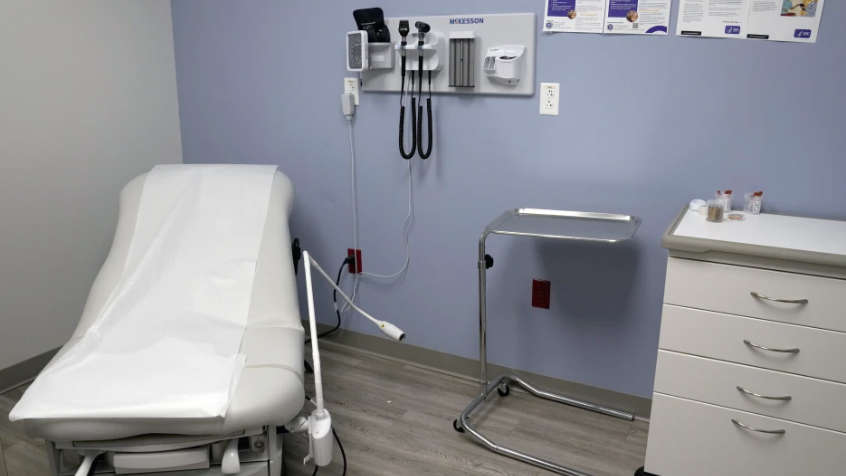COEUR D’ALENE, Idaho — Idaho’s strict abortion laws have triggered an exodus of obstetricians and gynecologists from the state, leaving women across rural communities without access to essential reproductive healthcare.
Since 2022, 43% of Idaho’s OB/GYNs have stopped practicing in the state, according to a study by the American Medical Association. In rural areas, this means women must now travel hours for routine checkups or emergency treatment.
“The laws in Idaho are pushing doctors out,” said Dr. Brenna McCrummen, an OB/GYN at Kootenai Health in Coeur d’Alene. “Criminalizing medicine creates a lot of complexity, and a lot of physicians are choosing not to work here.”
The healthcare crisis became acute when Bonner General Hospital in Sandpoint closed its labor and delivery unit.
“All four of our OB/GYNs departed the state after that,” said Jen Jackson Quintano, a Sandpoint resident. “In the wake of that, there were a lot of questions about where do we go now? What do we do?”
Dr. McCrummen’s practice has absorbed many of these displaced patients, creating additional strain on remaining providers.
“We have inherited a huge amount of patients in that area that no longer had access to prenatal care or gynecological care near their home,” McCrummen said. “It’s created a lot of barriers for them to get care and for us to provide care to that many people.”
The American Medical Association study reveals the scope of the physician exodus: Of the OB/GYNs who left Idaho practice, 42% relocated to states with less restrictive abortion laws, 16% now practice only gynecology, and 13% abandoned their rural practices entirely.
McCrummen noted that most remaining OB doctors concentrate in Idaho’s seven most populated counties, leaving only 23 physicians to serve approximately 570,000 people in the rest of the state.
In Stanley, Idaho, no OB/GYN patients must drive more than an hour for routine care.
“There are times when there are more severe complications, especially in the second half of pregnancy, that they would have to be transported to Boise,” said Amy Klinger, a physician assistant in Stanley.
The shortage has created ripple effects beyond Idaho’s borders. MultiCare, a healthcare system in Washington state, reported an 18% increase in Idaho patients from 2022 to 2023 as women cross state lines seeking care.
“Until the laws change, OB/GYNs will continue to leave the state and patients will continue to suffer,” McCrummen said.
COPYRIGHT 2025 BY KXLY. ALL RIGHTS RESERVED. THIS MATERIAL MAY NOT BE PUBLISHED, BROADCAST, REWRITTEN OR REDISTRIBUTED.
